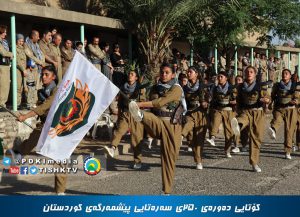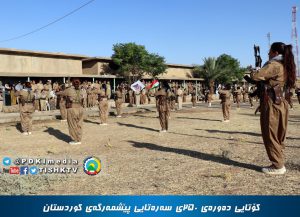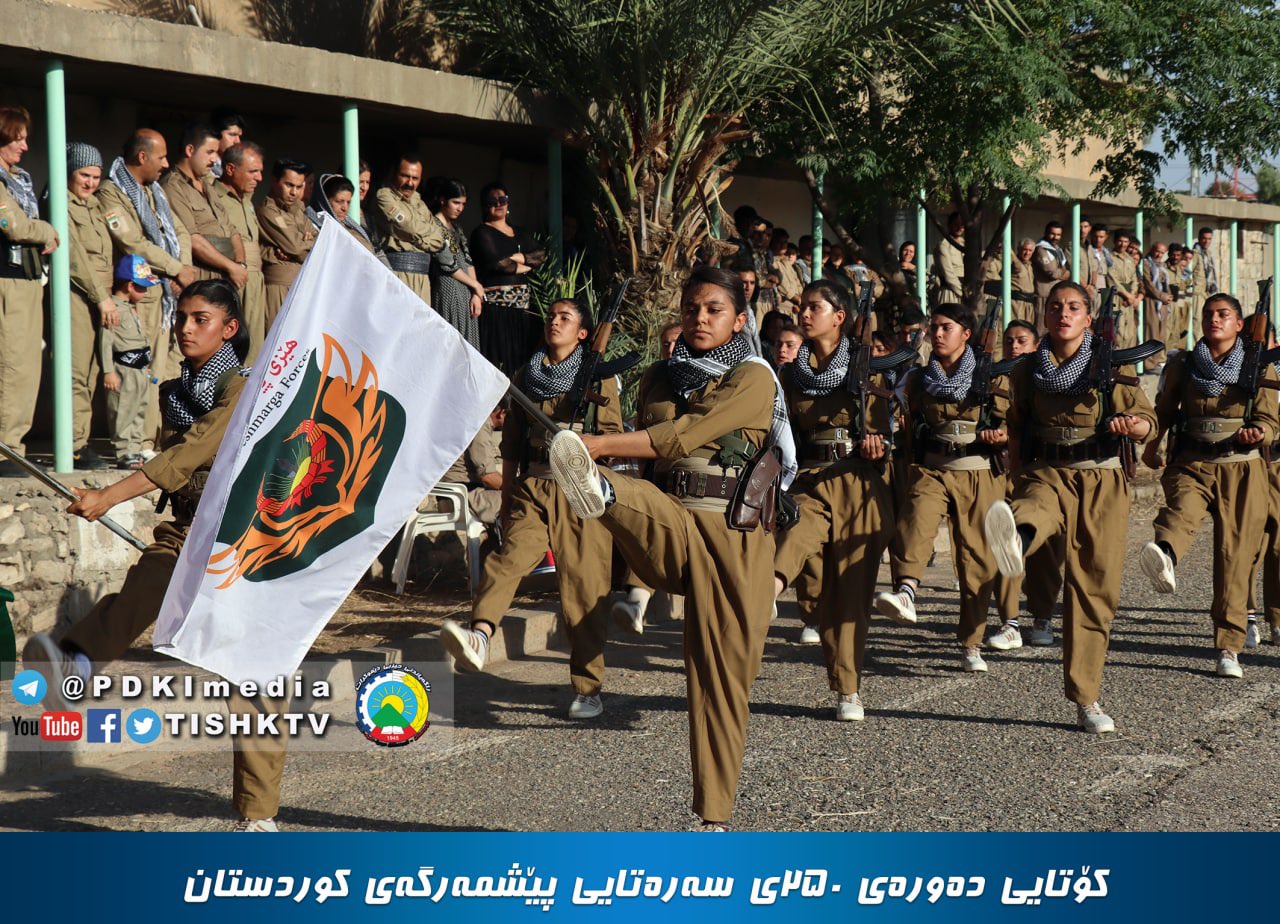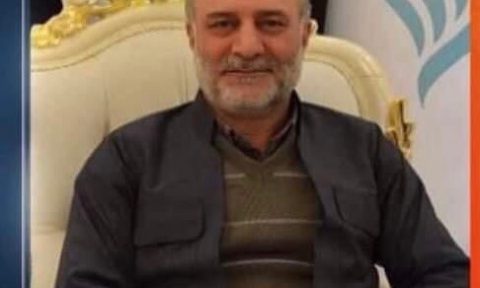The mandate of the UN Special Representative of the Secretary-General for Children and Armed Conflict (OSRSG-CAAC) was created by the UN General Assembly in December 1996 to strengthen the protection of children affected by armed conflict, raise awareness, promote the collection of information about the plight of children affected by war and foster international cooperation to improve their protection.
Since 1999, the systematic engagement of the UN Security Council has firmly placed the situation of children affected by armed conflict as an issue affecting peace and security.
Over 160,000 child soldiers released since 2000 as a result of UN dialogue and Action Plans, most of them from African countries.
Asking the KDPI: What happened to Sardar Tabnak?
Terminating and preventing the occurrence of six serious violations has been the focus of the Special Representative’s work and duties. In 1996, the Security Council established a Monitoring and Reporting Mechanism – or MRM – to regularly monitor, document, and report child abuse.
In its annual report on children and armed conflict, the UN Secretary-General called on parties in conflict to stop recruit, kill, rape, abuse, and attack children, as well as attacks on schools and medical hospitals. The purpose is to put an end to these violations.
To better monitor, prevent, and end attacks on children, the United Nations Security Council has identified and condemned the following six grave violations against children in times of war, which were monitored in 20 conflict-affected countries around the world in 2017.
۱٫ Killing and maiming of children
۲٫ Recruitment and use of children by armed forces or armed groups
۳٫ Attacks on schools or hospitals
۴٫ Rape or other sexual violence against children
۵٫ Abduction of children
۶٫ Denial of humanitarian access to children
The children of Şino (Oshnaviyeh); Part 1
Kurdish armed groups, regardless of their ideology and location in the Middle East, are one of the main suspects in the recruitment of children as soldiers. The PKK, PJAK, the YPG, the Kurdistan Democratic Party of Iran, and other Kurdish groups have repeatedly used children for armed and terrorist purposes.
IKHRW has extensively reported on child recruitment, providing interviews with families, footage, pictures and other proof of the recruitment of minors by Kurdish militant groups.
The children of Şino (Oshnaviyeh); Part 2
The Paris Principles on the Involvement of Children in Armed Conflict, adopted in 1993, define the child soldiers as following: “A child who is associated with one of the government’s armed forces or a non-governmental armed group is declared anyone under the age of 18, that functions as a cook, a fighter, service, logistical or support force, spy, or is used for sexual purposes.”
The “Paris Commitments” lay out detailed guidelines for protecting children from recruitment and for providing assistance to those already involved with armed groups or forces. They complement the political and legal mechanisms already in place at the UN Security Council, the International Criminal Court and other bodies trying to protect children from exploitation and violence.
Obviously, voluntary or compulsory membership are undistinguisable according to the Paris Principles. It makes no difference whether a child is voluntarily, practically forcibly recruited, or abducted.
Also in 2000, the Optional Protocol to the Convention on the Rights of the Child on the Participation of Children in Armed Conflict was ratified by the UN General Assembly and entered into force on 12 february 2002.
The Optional protocol is a commitment that:
- States will not recruit children under the age of 18 to send them to the battlefield.
- States will not conscript soldiers below the age of 18.
- States should take all possible measures to prevent such recruitment –including legislation to prohibit and criminalize the recruitment of children under 18 and involve them in hostilities.
- States will demobilize anyone under 18 conscripted or used in hostilities and will provide physical, psychological recovery services and help their social reintegration.
- Armed groups distinct from the armed forces of a country should not, under any circumstances, recruit or use in hostilities anyone under 18.
With the implementation of the Optional protocol, the UN searches to prevent the recruitment of anyone under 18 years old as a soldier – and as stated above also as cook, logistical support, spy, or any function inside an army or armed militia.
Neighbouring to death: From school to the battlefield / KDPI Continues to Abduct and Deceive Kurdish Under Ages
Kurdistan Democratic Party of Iran (KDPI); Violator of children’s rights
Recently, the official Twitter account of the Kurdistan Democratic Party of Iran proudly posted photos of its armed children. There are some serious questions in this regard. Which legitimate political party arms minors?

There are minors among the young women shown. This is a violation of human rights and international law. The Convention on the Rights of the Child explicitly prohibits the recruitment of persons under 18 years of age. Do they even listen to the demands of the families of these girls?
Did this armed group kidnap or forcibly recruit them? Can a child decide for itself whether it wants to take up arms? Why do militant groups depend on children and adolescents for their manpower?

The interesting thing is the silence of Kurdish human rights institutions in this regard. These all work hard to report human rights violations perpetrated by non-Kurds on Kurds, or their rival party on their own affiliated party. But if hundreds of Kurdish children become members of diverse armed groups, despite shout-outs of their families for them to return their children home, and even their bodies are not returned after death: these institutions show their biased approach, and completely seem to forget about human rights.
At the same time, reports on human rights violations by Kurds on Kurds, are quickly shoved off as government propaganda – even though there is an abundance of evidence available.
Conclusion
The only conclusion that can be drawn from these photos, in combination with testimonies of families of child soldiers, is the blatant violation of children’s rights. Of course, the apparent neglect of Kurdish human rights institutions to report on violations within their own parties and systems should not be neglected. The Iranian government on the other hand also bears a heavy responsibility in the regard of its failure to protect and return these minors.
In the context of the commitments named above, governments are required to do so in various ways, including criminalizing the exploitation and abuse of children by individuals and groups. It is also obliged to protect and guarantee minority fundamental rights and freedoms, which would diminish the influence clandestine groups exercise over the minority’s easily influence able youth.
IKHRW calls on the international community to break the silence, and report on violations of human rights and child recruitment in Kurdistan.
Institutes can contact IKHRW for extensive reports, equipped with testimonies, proof and images that are not fit to show online.










